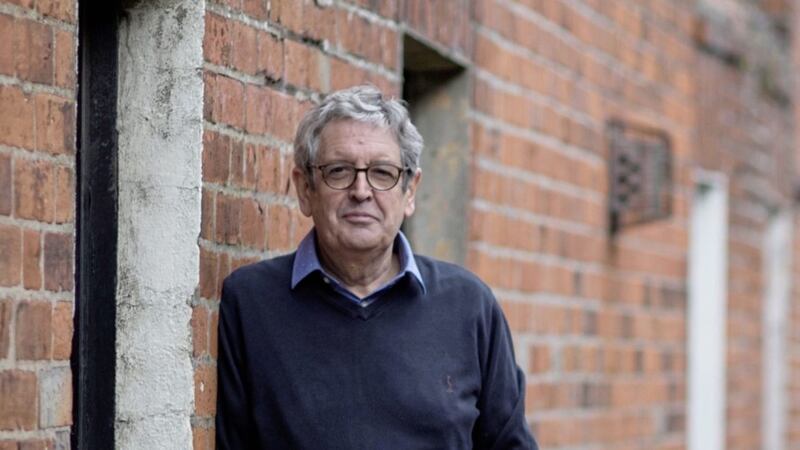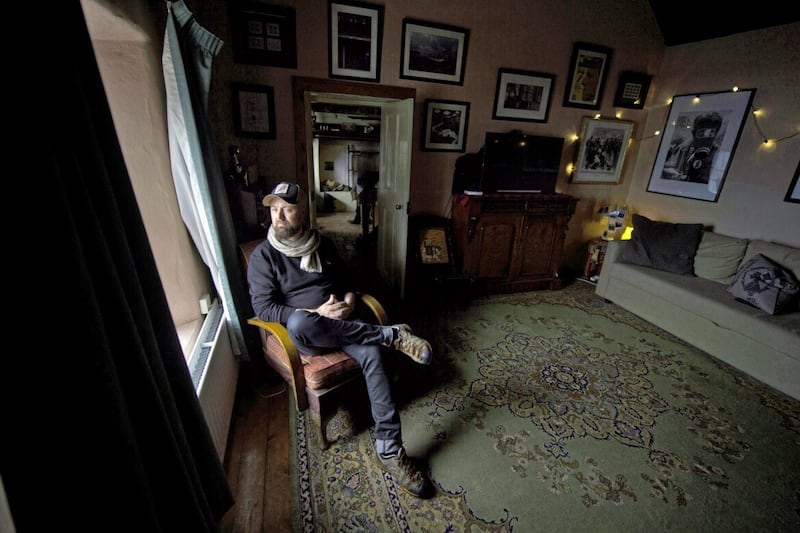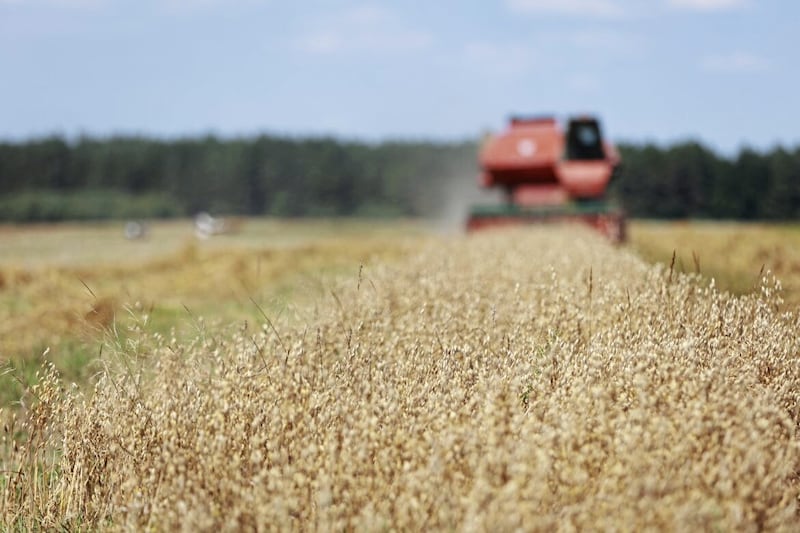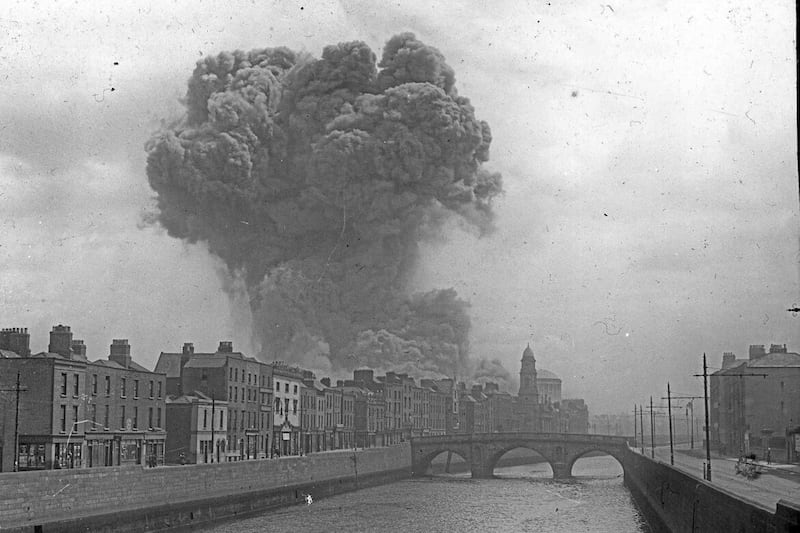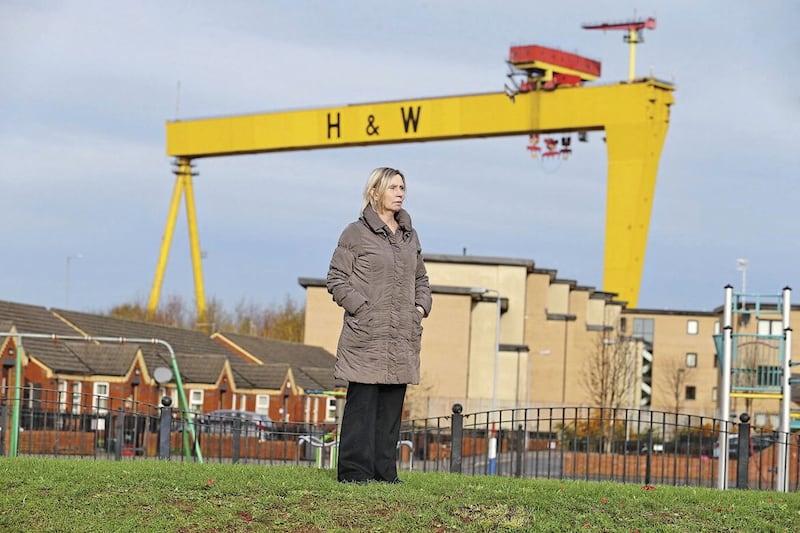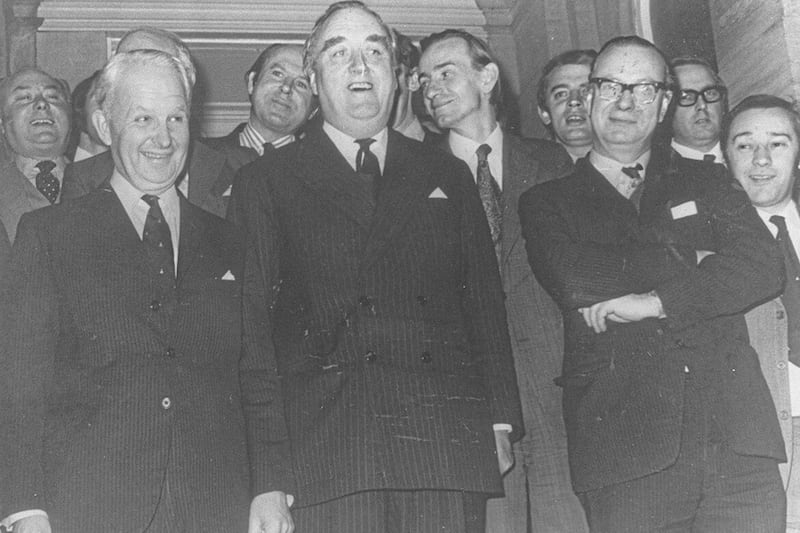WHEN I was in my mid-60s, I came to the realisation that the stories handed down to me by my mother as a young lad in the 1950s in Belfast made me want to write.
They emerged at any time and in any circumstance. An overheard strain of music on the radio would set her off; a look or smile from a fellow passenger on the bus; a rediscovered official document like a ration book from the Second World War; a piece of furniture in a shop window.
They all brought recollection and history into the most fleeting of alignments, mostly unselfconsciously, or so I thought at the time.
One morning not so long ago I caught myself absent-mindedly in the reflection of a mirror in our house in Du?n Laoghaire. For a split second I was looking not at myself – a somewhat worn, bespectacled, middle-aged man – but the cast of my late mother was bizarrely present.
A second look and the impression had gone, along with the surprise. In the disorientation, I think I also encountered the extent to which the past is never really lost sight of but lives on in those stories we are told by our elders, and which we, in turn, make our own and hand on. Like guidelines. Points of reference. Hints about what the future might hold.
My mother had a very strong sense of family and its past, even though it was not a simple or an easy story. Those bits of memory were carried like seeds in the wind from as far back as the 1850s, over a century before I first heard them.
Tales about my great-grandmother in India, with her improvident military father. Or her subsequent life in Edwardian Belfast; the family's never-ending movement out of the city to England, or Canada, or the United States, and always the inevitable return to Belfast. The city was like a magnetic pull.
These fragments of stories were more often than not connected to the houses my mother lived in and there were many of them. Temporary homes for the early part of her life, captured in photographs with captions handwritten on the back.
'Snowbound in Toronto'. This would have been in the 1920s. 'Visiting the Zoo': this, London in the 1930s. 'Gaga' – the family name for my great-grandfather – 'in the garden at Park Avenue', maybe a little later, in Hendon. Asleep as it happens, in his three-piece suit. Another photo has him stretching for a bottle of beer. It has to be summer, just before the war. Later, in the 1960s, I'd be lolling about that garden too. Over in London for a wedding, no doubt.
In her retelling details, the houses she lived in took on a momentary presence in profile, a hinted-at life, but none had as much imaginative draw for my mother as the house in Duncairn Gardens off the Antrim Road in north Belfast where she grew up, returned briefly to during the war and left again to marry. The house stood at the top of the Gardens. A somewhat sombre-looking, even foreboding, high terraced house, with its curtains neatly drawn. It no longer exists and the Gardens themselves are long gone.
I recall the bus ambling along the Antrim Road and her turning her head slightly in the direction of the old house when I was a young boy heading into town on Saturday mornings to accompany her shopping. It was obvious that the house, where she and her brother had lived with their mother, had etched itself upon her mind. When it was sold, the family moved about a mile away in the same district and settled in a smaller version of the same style of house.
A house of women it was, too. Great-grandmother, she of the Indian experience, her daughter, my grandmother, my mother and my sister, until I came along and we moved to a newly built estate of houses tucked beside a golf course and called 'Downview' because, across the lough, County Down rolled away.
And though those years in Downview eventually became unhappy ones for my mother and we moved once more, back to my grandmother's house, there was a vague sense of the countryside about our time there in the 1950s.
Visiting her friends in the old red-brick avenues must have reminded her of a previous life, so by the time she had moved once again, this time to the east of the city, these places were receding and losing their reality as homes. It was only a matter of a generation before the Downview estate was demolished and new-styled condominiums went up in their place.
As one home joined another in her memory bank, the past would survive in a chair or a mirror which had remained from a century before, when they all started on their travels.
::A City Imagined - Belfast Soulscapes by Gerald Dawe is published by Merrion Press, £14.99
